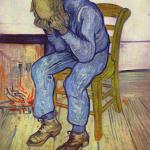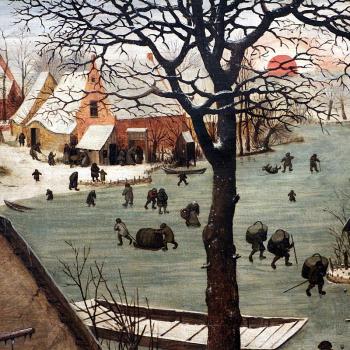Even simply staying close to the text, we can see that we’re tasked with caring for the world around us; using it yes, but these things are “very good.” All of creation, in its totality, is given this epithet. This means preserving it in its beauty, that is, in its goodness. One needn’t believe in global warming to think that this sort of stewarding is our duty. And that’s what gets me about what Germany is up to here. The scarred remains of its countryside are clearly no testament to beauty, nor is the forced relocation of thousands of people.
There’s only one way I can see a Christian supporting this, and that’s through something like “economic necessity.” In the United States, we have ongoing debates about coal and jobs, with Germany experiencing something not too different:
It [Lausitz] is a region that has already dealt with enormous change in recent decades. Of the 80,000 jobs in brown coal mining when it was still part of the former East Germany, only 8,000 remain. The area has undergone a “demographically-linked depletion,” that is “deeply ingrained in the collective memory of the region.” People have been left with “a strong feeling of how precarious their own living conditions can be,” the study concludes.
And far-right parties know how to tap into these feelings. The group Pro Lausitzer Braunkohle (Pro Lausitz Brown Coal) recently sent a paper on the issue to parliamentarians in Berlin. In it, they warn of a “societal collapse” in the region. The activists added up the votes cast the Lausitz electoral precincts in last September’s general election. Their results show that the right-wing populist Alternative for Germany ended up with 168,000 votes, making it the most popular party in the region ahead of the Christian Democrats’ 149,000 votes.
And it isn’t an issue that politicians can expect to benefit from. The outgoing governor in Saxony, Stanislaw Tillich of the Christian Democrats, learned that the hard way. In view of a potential lignite phase out, he proposed the creation of a 6.2-billion-euro fund to deal with structural change. (Der Spiegel)
But putting monetary upkeep before stewarding the earth (read: doing God’s will) seems a strange answer. Are we Judas with the perfumed oil? What of going forth without a money bag and sandals? And that’s where the real contradiction comes into play: the interests of global capital (i.e. constantly-increasing value extraction, or, in more mundane terms, profit) is not what we are supposed to want. Global temperatures and climatic change may very well be important (and, in fact, I think they are), but they aren’t even the primary questions.
Of course, one can’t blame people for not wanting to lose their jobs. But by the same token one can’t blame people for being upset about being forced out of their hometowns and made to resettle elsewhere. One can’t blame people for outrage at watching the green fields around their homes turn to short-term coal boom sites.
I suppose I see this as just another place in which a major contradiction must come to the surface. We as Christians have a duty, regardless of the ways of the world. That’s, granted, not an easy thing, but it’s what we’re called to do. I don’t pretend to be perfect in my stewardship habits (I mean I try not to litter and leave unnecessary lights on, but I’m not composting old food or planting trees left and right). None of us is. David Bentley Hart’s recent piece, “Christ’s Rabble,” makes it clear enough that all of us fail to live up to the radical message of the Gospel. But that doesn’t mean we ought to stop trying. If anything, it means we ought to better recognize how it is that the interests of a system devoted to profit can structure our perspectives, subtly lead us away from the Good News. Old churches are being destroyed, whole towns moved. Is our job to justify it or witness to its wrongdoings?
I’ll leave you with a vignette from the village of Immerath, whose residents face relocation:
Ida quickly made a picture for her mother. The little girl gave the work the title, ‘The Dead Town.” It tells the story of Immerath, of a town that was once home. (Luzerner Zeitung)












